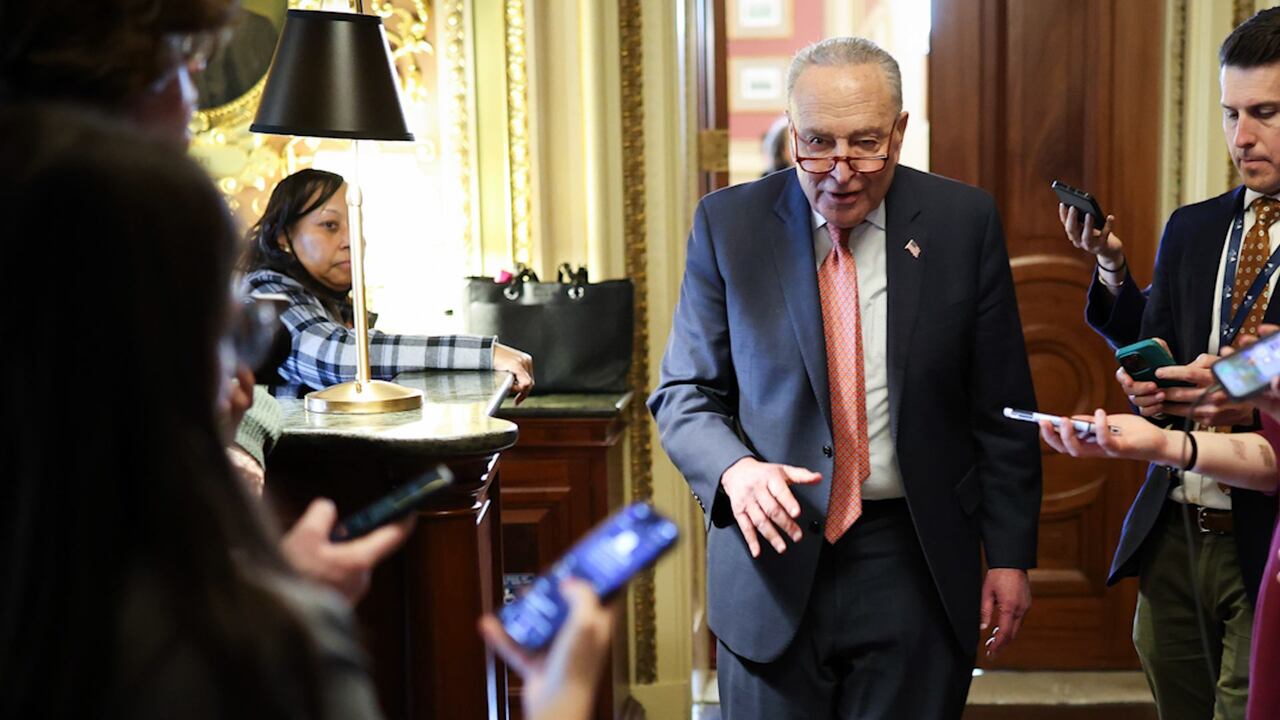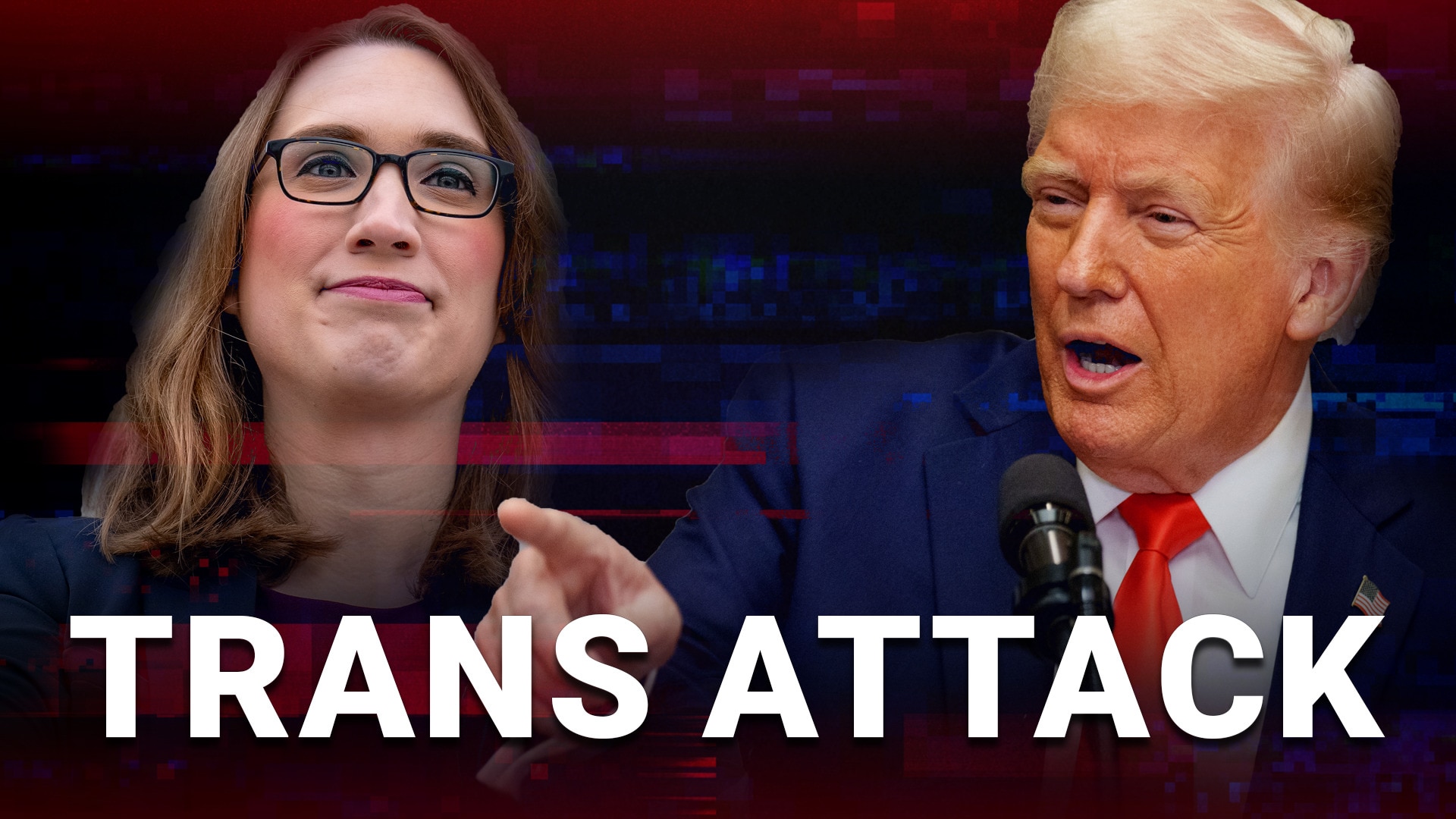US Senate passes bill averting shutdown, after critical boost from Democrats
Chuck Schumer takes heavy criticism from fellow Democrats for backing GOP measure, which he called the better of two bad options.

A group of Democrats led by Senate Minority Leader Chuck Schumer have helped Republicans approve a bill to fund the government through September, averting a shutdown but leaving Democrats despondent and deeply divided over how to resist President Donald Trump’s aggressive agenda.
The New York lawmaker and nine other members of the Democratic caucus broke with most of their party on a procedural vote for $1.7 trillion funding measure, moving it forward on a 62-to-38 tally, above the required 60-vote threshold for most bills to clear the Senate. One Republican, Sen. Rand Paul of Kentucky, voted no.
In the subsequent final vote that required only a simple majority, the Senate approved the bill 54-46, largely along party lines. It now goes to Trump’s desk for his signature.
The outcome in the Senate, where Republicans have a 53-47 majority, underscored how little power Democrats have to resist Trump’s plans and fuelled rising frustration in the party’s ranks over its direction and leadership. In his whirlwind first 50 days in office, Trump has moved to sharply trim the federal workforce and rein in foreign aid while setting the stage for a multitrillion-dollar package of tax cuts, spending reductions and border spending later this year.

Schumer, who was abandoned by most of his caucus, said the GOP bill was the better of two bad choices. He argued that blocking the measure and risking a shutdown would enable Trump and Elon Musk’s Department of Government Efficiency to speed up their restructuring of federal agencies, citing the administration’s power during a funding lapse to determine which employees and services are essential or non-essential.
“A shutdown would allow DOGE to shift into overdrive,” said Schumer said on the Senate floor, while warning Republicans might be in no rush to reopen the government. “They can stay in a shutdown as long as they want. There is no off ramp.” Democrats also worried that the federal courts might get shut down during a funding lapse, stalling cases that are challenging the administration’s actions.
The GOP-written measure, known as a continuing resolution, largely funds the government for fiscal 2025 at the prior year’s levels, but provides the administration more flexibility to downsize and dismantle government agencies.

The decision by Schumer and the small group of other Democratic senators not to block the Republican proposal came despite heavy pressure from House Democrats and party activists, who called the vote a rare moment in the Republican-controlled capital to fight back against Trump and his GOP allies. Aides said Democratic Senate offices were being inundated by phone calls, with the callers overwhelmingly against the Republican bill.
The American Federation of Government Employees, which represents more than 800,000 federal and D.C.-government workers, urged senators to block the GOP proposal.
“I knew I’d get flack, and I have,” Schumer said in an interview. He said House Democrats “had the luxury of voting no and not shutting down” the government. “The Senate cannot do that, and it makes it more difficult,” he said.
Criticism from House colleagues cut across generational and ideological lines. Rep. Nancy Pelosi (D., Calif.), the former House speaker, said “this false choice that some are buying instead of fighting is unacceptable.”
Rep. Alexandria Ocasio Cortez (D., N.Y.) said the bill’s passage would lead to “the evisceration of the federal government.” House Minority Leader Hakeem Jeffries (D., N.Y.) and his leadership team said that House Democrats “will not be complicit” and remain strongly opposed to the GOP bill. In a press conference Friday, Jeffries was asked if it were time for new leadership in the Senate. “Next question,” he replied.

Sen. Patty Murray (D., Wash.), the top Democrat on the Senate Appropriations Committee, argued against the bill, saying that the Trump administration would use the leeway granted by the measure to dole out money to favoured groups and deny resources to everyone else.
“Senators were not elected to beg Trump for federal resources,” she said. Underscoring the grim politics of the decision for Schumer, Trump praised the Democratic leader. “Took ‘guts’ and courage!” he wrote on Truth Social.
Republican lawmakers have largely embraced the agency cuts and job reductions, even as they work to reverse some cuts that affect their own states. They warned that any lapse in funding would be on Democrats’ shoulders, in what some termed a “Schumer shutdown.” Keeping the government open “rests squarely with Senate Democrats: barrel us into a government shutdown or choose common sense and vote to keep our government open for hardworking Americans,” Sen. Shelley Moore Capito (R., W.Va.) said in a social-media post.
The GOP measure boosts military spending by $6 billion and cuts non-military spending by $US13 billion. It prevents the renewal of earmarks that had funded programs such as $US294 million in federal emergency grants for disaster preparedness and mitigation. It forces Washington, D.C., to cut $US1 billion in spending, most of which is funded through local taxes.
The Republican-run House passed the measure earlier this week, largely along party lines, and then left town, effectively preventing the Senate from making any changes. Without new funding, non-essential government functions would cease at 12:01am on Saturday and some federal workers would face furloughs while others would be asked to work without getting paid on time.
Earlier in the week, Schumer effectively issued a shutdown threat by saying that Republicans didn’t have enough support for their proposal to extend funding through September. He instead offered an alternative 30-day funding plan to buy more time for bipartisan talks, but Republicans called that a nonstarter.
Schumer then changed course Thursday and said he would support the GOP bill, and he privately told colleagues enough other Democrats were prepared to vote yes and help the Republicans reach 60 votes, prompting fierce blowback. Critics also said that if Democrats backed down now, that would signal they were prepared to roll over in September as well, when the next full-year funding bill would need to be written and passed.
Sen. Mark Warner (D., Va.)., who opposed the bill after hearing from federal workers and contractors in his state, said he has “complete sympathy, empathy, understanding for those who chose otherwise,” including Schumer. Of critics in the House, he said, they “had the luxury of almost having a free vote” because Republicans didn’t require their support to pass the measure.
– Dow Jones Newswires





To join the conversation, please log in. Don't have an account? Register
Join the conversation, you are commenting as Logout